Điểm nhấn
-
 Hội thảo “Thực trạng người Việt Nam hồi hương từ Vương quốc Anh giai đoạn 2014 - 2023”
Hội thảo “Thực trạng người Việt Nam hồi hương từ Vương quốc Anh giai đoạn 2014 - 2023”
-
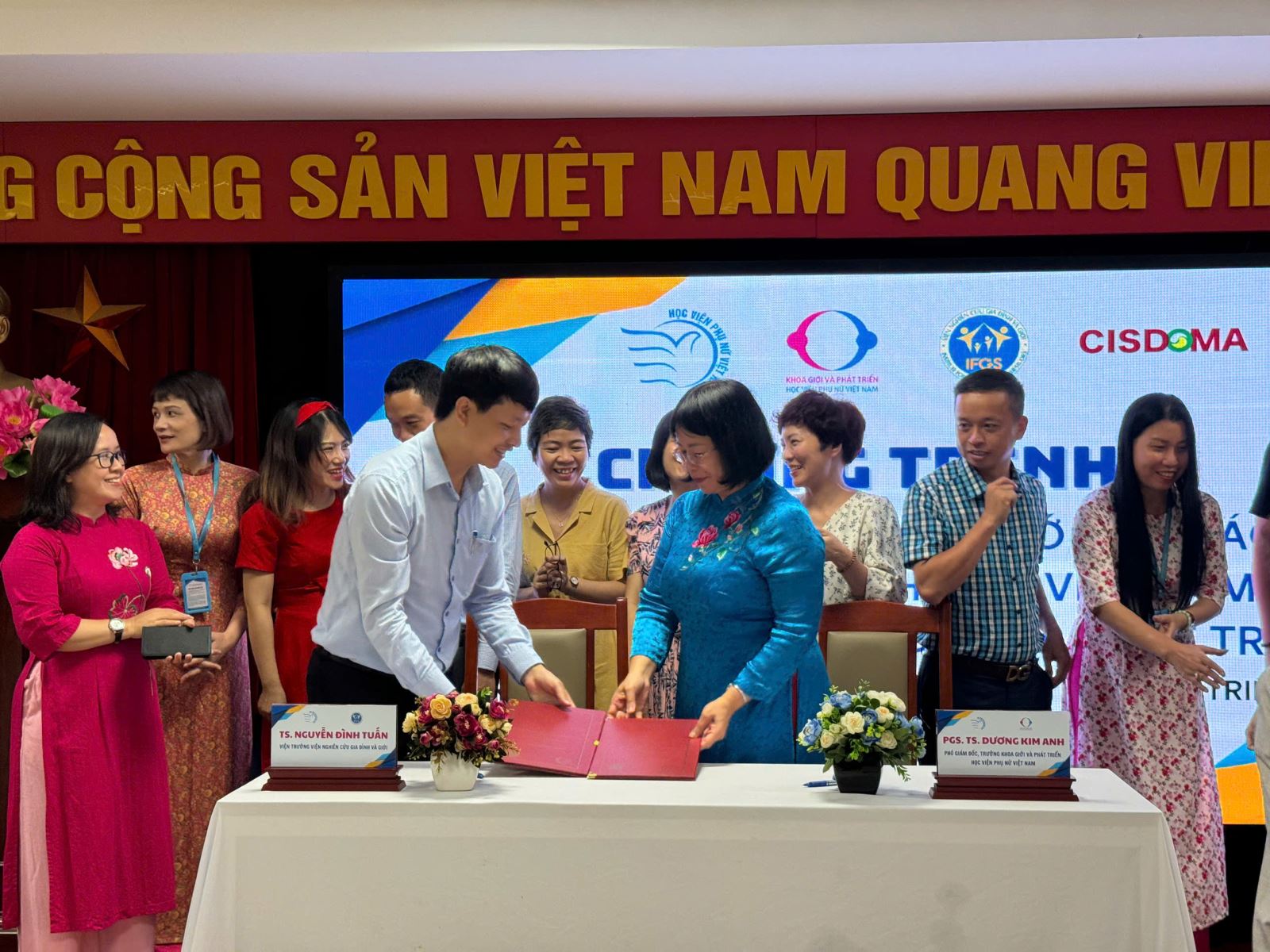 Lễ Ký kết biên bản ghi nhớ hợp tác giữa Học viện Phụ nữ Việt Nam với Viện Nghiên cứu Gia đình và Giới
Lễ Ký kết biên bản ghi nhớ hợp tác giữa Học viện Phụ nữ Việt Nam với Viện Nghiên cứu Gia đình và Giới
-
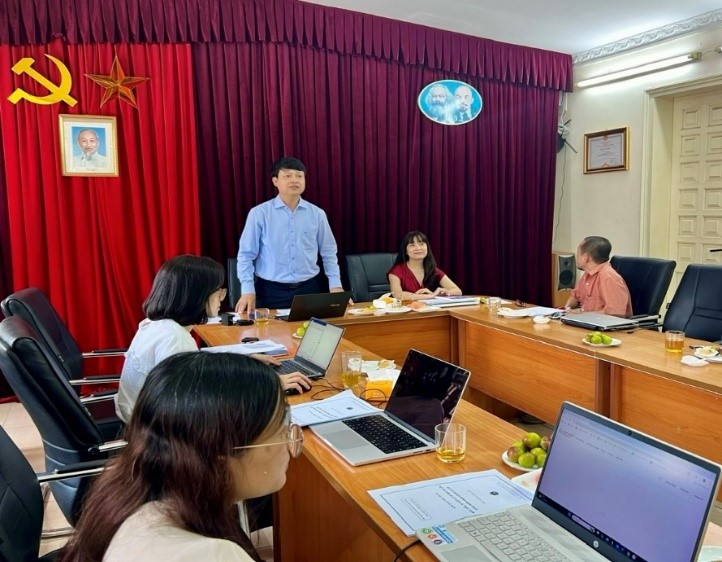 Hội thảo khoa học: "Bộ chỉ số gia đình hạnh phúc: Một số vấn đề lý luận và thực tiễn"
Hội thảo khoa học: "Bộ chỉ số gia đình hạnh phúc: Một số vấn đề lý luận và thực tiễn"
-
 Tọa đàm khoa học "Vận dụng lý thuyết trong nghiên cứu khoa học xã hội"
Tọa đàm khoa học "Vận dụng lý thuyết trong nghiên cứu khoa học xã hội"
-
 Hội nghị Đối thoại giữa Chi ủy, Lãnh đạo viện với đảng viên, viên chức và người lao động Viện nghiên cứu Gia đình và Giới 6 tháng đầu năm 2024
Hội nghị Đối thoại giữa Chi ủy, Lãnh đạo viện với đảng viên, viên chức và người lao động Viện nghiên cứu Gia đình và Giới 6 tháng đầu năm 2024
-
 Chi bộ Viện nghiên cứu Gia đình và Giới tổ chức sinh hoạt chuyên đề: Đoàn kết thống nhất trong Đảng theo tư tưởng Hồ Chí Minh
Chi bộ Viện nghiên cứu Gia đình và Giới tổ chức sinh hoạt chuyên đề: Đoàn kết thống nhất trong Đảng theo tư tưởng Hồ Chí Minh
-
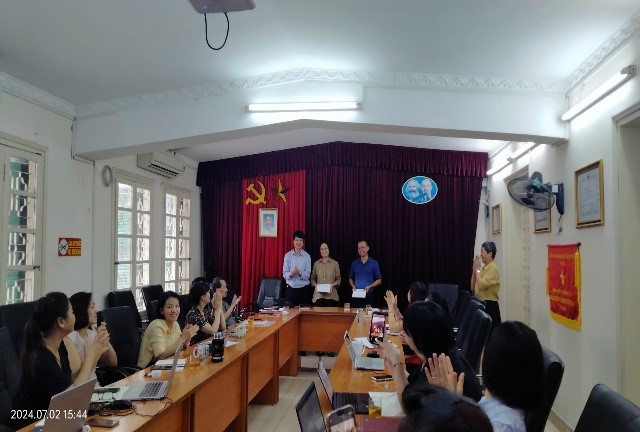 Cuộc thi “Nét đẹp và giá trị gia đình Việt Nam” hưởng ứng Ngày Gia đình Việt Nam 2024
Cuộc thi “Nét đẹp và giá trị gia đình Việt Nam” hưởng ứng Ngày Gia đình Việt Nam 2024
-
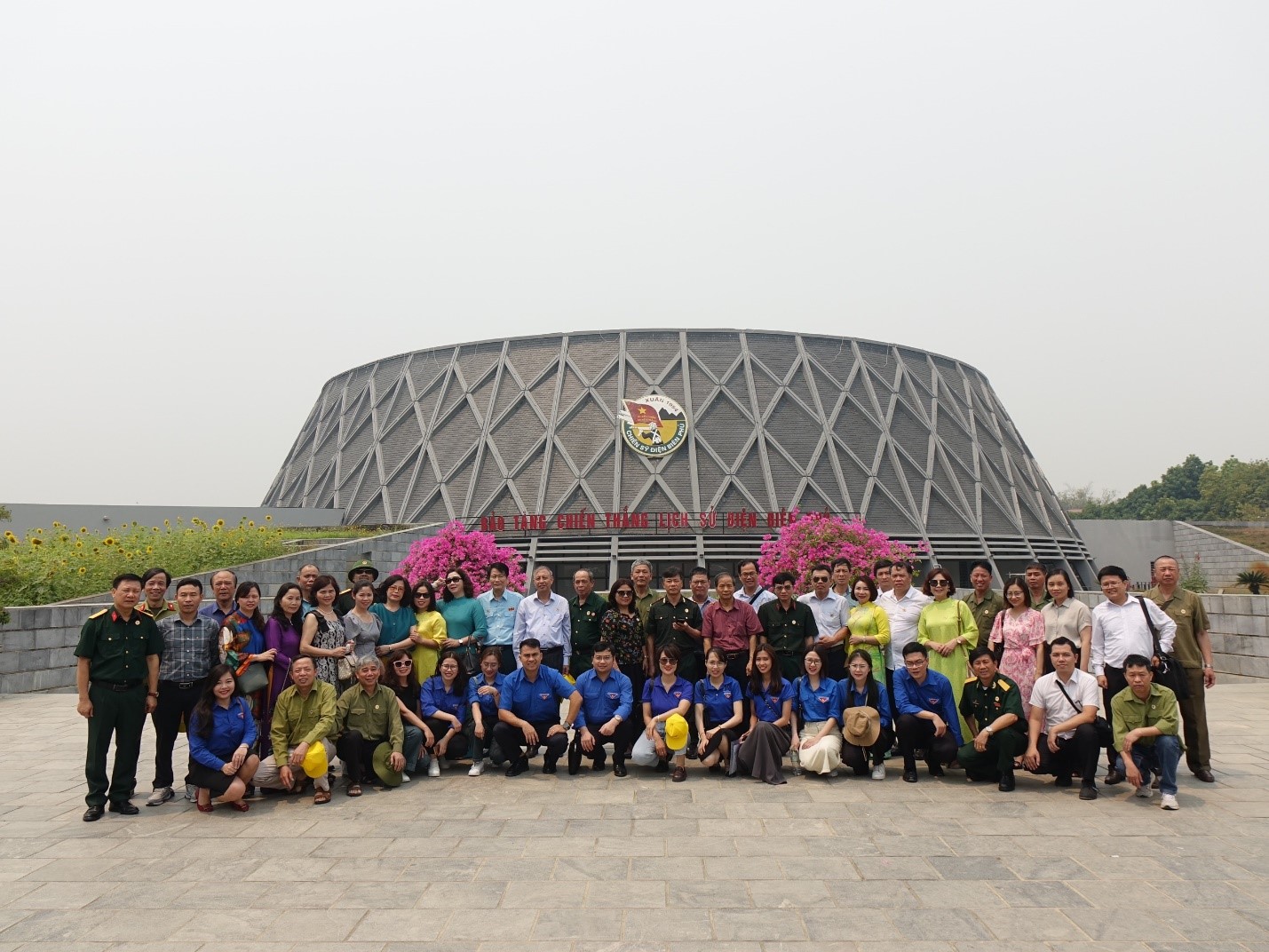 Hội Cựu chiến binh, Đoàn Thanh niên Viện Hàn lâm Khoa học xã hội Việt Nam đi thăm lại chiến trường xưa Điện Biên Phủ
Hội Cựu chiến binh, Đoàn Thanh niên Viện Hàn lâm Khoa học xã hội Việt Nam đi thăm lại chiến trường xưa Điện Biên Phủ
- Tổng mục lục Tạp chí 2023
-
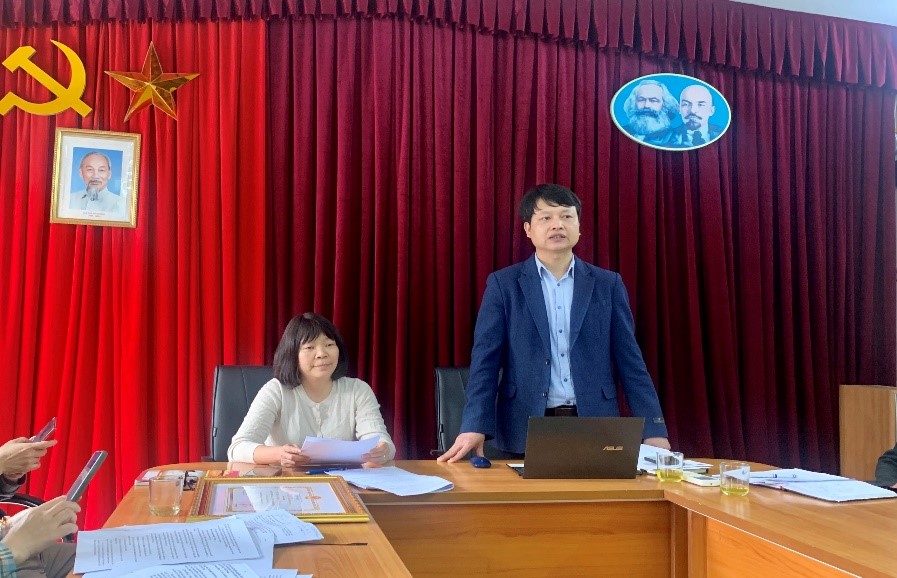 Viện nghiên cứu Gia đình và Giới phát động phong trào thi đua và ký Giao ước thi đua năm 2024
Viện nghiên cứu Gia đình và Giới phát động phong trào thi đua và ký Giao ước thi đua năm 2024
Liên kết web
Số lượt truy cập
190
4454762
Chi tiết tạp chíNo. 2 - 2010
Participation of Women in Management and Leadership in Vietnam: some Factors Affecting and Solutions
Abstract: The paper summaries main features of women’s participation in leadership and management in Vietnam today. Two years after Gender Equality Law and Resolution No. 11 by CPV’s Poliburo came into effect, some of the gender equality objectives have been achieved and planning for women participation in leadership and management has been improved. However, many requirements for improvement of women’s status among government officers have not been met. The number of women participated in leadership is short of the target. The proportion of women among key leadership candidates for future position is low. Factors prohibiting women’s participation in leadership include: lack of awareness about women’s role and policies for women’s cadres; policies and mechanism for promoting women’s leadership are not complete; gender equality has not been integrated properly into planning for future leadership positions; training for women cadres has not received proper attention; lack of awareness among women and their families, especially their husbands. The paper concluded by a number of recommendations for improvement of women’s participation in leadership and management in Vietnam.
Keywords: Women, Policy, Gender Equality.
Some Social Issues of Contemporary Domestic Worker in Urban Areas
Abstract: The paper examines the life of domestic workers in terms of wage, working time, annual leave, public holidays and labour skills, through the interviews with 300 representatives of households with domestic workers and 300 domestic workers in Hanoi in 2008, and also reviews the operation of employment agencies for this type of labour. According to the author, for some specific characteristics of the work, the relationship between domestic workers and their employers seems not to be fair and democratic enough and employment agencies seems not to work with full responsibility. An explanation for the issues is the lack of various legal stipulations and supervisions from government agencies.
Keywords: Domestic Worker; Labour; Employment.
Abstract: Basing on the research “Menopausal Women’s Reproductive Health Care”, which was conducted in Xuan La Ward, Tay Ho District, Hanoi in August 2007, the paper examines the awareness about and needs for reproductive health care among menopausal women from a sociological perspective. The findings show that although most of the women in the research site have poor knowledge about menopausal signs and indications, they are well aware of the consequences of menopause. Their needs for reproductive health care are huge in both physical and psychological terms. As the author emphasizes, to encounter various difficulties in the age of menopause, besides medical examinations, treatments and consultations, they need understanding and care from their husband and children.
Keywords: Reproductive Health Care; Women Health; Menopause.
Parent-Children Communication towards Sexual Relationship of Youths in Hanoi
Abstract: This paper explores the parents’ sexual opinion, parents’ supervision on children attitudes towards sexual behavior of young people in Hanoi, Vietnam. Using ethnographic and snowball sampling, data were colleted through in-depth interview with 35 young people and 10 their parents. Parents’ replies highlighted the influence of culture and belief on their sexual values, which they wished to convey to their children. Although direct communication about sex related topics was rare within these families, parents used other strategies to pass on their values. The paper concludes that sexual values within families and the influence of culture need to be considered as a channel to convey sexual values to children.
Keywords: Sexual Relationship; Adolescent; Youth; Family Relationship.

